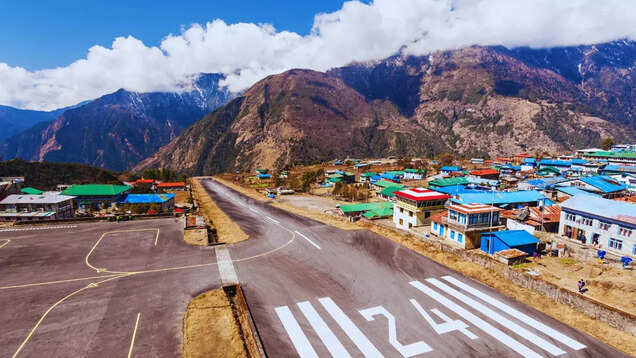Air travel has connected some of the most distant and isolated parts of the world, and a handful of airports stand out for their extreme remoteness. These airports are often surrounded by vast, untouched landscapes or communities far from the hustle and bustle of major cities. They serve as crucial connections for locals, scientists, and travellers with an adventurous spirit.
Svalbard Airport (LYR), Norway
Ever wondered how to reach Longyearbyen, the world’s northernmost town? Well, Svalbard Airport is the main access point to this remote location.

McMurdo Station Ice Runway, Antarctica Nothing beats Antarctica when it comes to isolation. Although it is not a commercial airport, it is essential for bringing in scientists and personnel working on the continent.
Barra Airport (BRR), Scotland
Barra Airport in Scotland’s Outer Hebrides is the only airport in the world where scheduled flights land on a beach. The runway is a stretch of sandy shore that becomes usable at low tide.
Nadzab Airport (LAE), Papua New Guinea
Located in the Highlands of Papua New Guinea, Nadzab Airport provides access to some of the country’s most remote and rugged regions. Surrounded by dense jungle and steep mountains, the airport connects the city of Lae with isolated villages and ecotourism destinations. It’s a starting point for travellers wanting to explore the unique cultures and landscapes of Papua New Guinea.
Also read: Want to escape 9-5? 5 top countries offering digital nomad visa

Lukla Airport, Nepal
Tenzing-Hillary Airport, or Lukla Airport, is the primary gateway for trekkers and climbers heading to Mount Everest. Located in the Himalayas at an altitude of 9,334 feet, the airport has a reputation for being one of the most dangerous in the world. Its short runway and proximity to the mountains make it challenging for pilots, but its remoteness is part of the appeal for adventure seekers.
Also read: Rameswaram’s island life and cultural wonders you need to experience
Tristan da Cunha, Saint Helena
Tristan da Cunha, often called the world’s most remote inhabited island, lies in the South Atlantic Ocean. Though Tristan da Cunha doesn’t have an airport, Saint Helena Airport serves as the nearest access point, about 1,200 miles from the African coast. The airport’s difficult location and unpredictable winds make it one of the most challenging places to land, but it’s vital for anyone wishing to visit this isolated part of the world.

